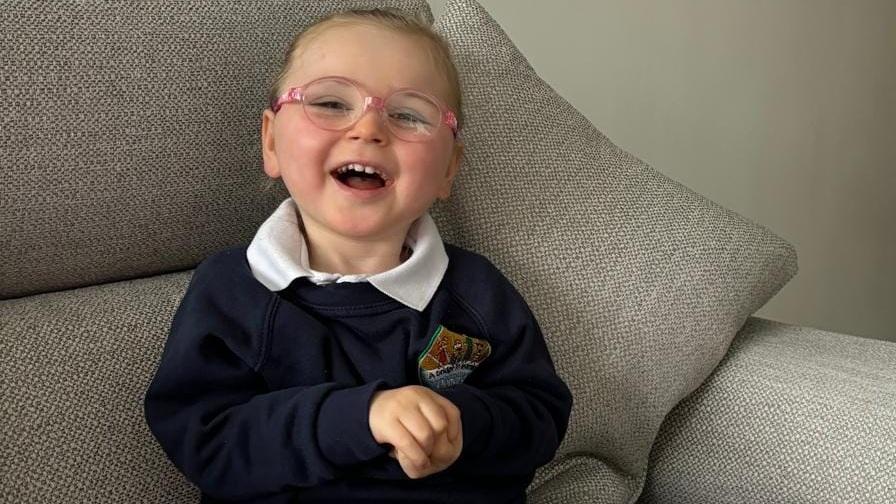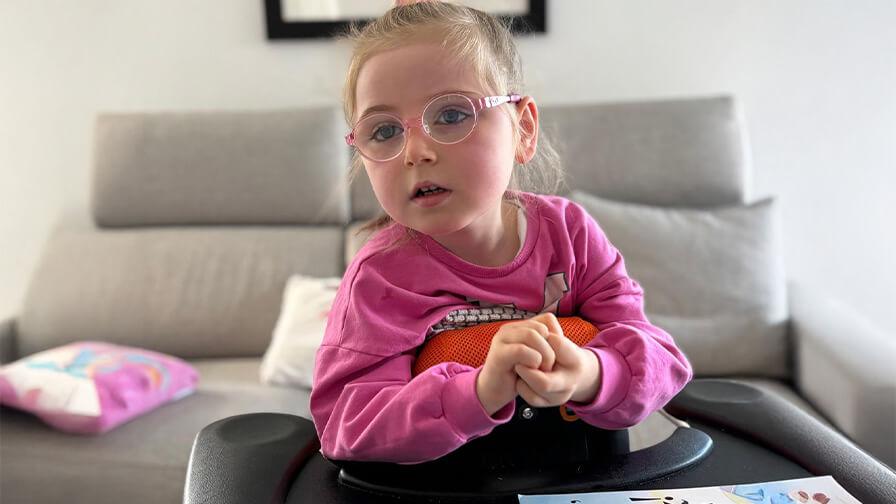
Imagine watching your baby develop normally, only to see those precious early skills and milestones slowly slip away. This is the heartbreaking reality for families affected by Rett syndrome.
It’s caused by a fault in a gene that’s critical for normal brain functioning. Symptoms start subtly, usually around six to 18 months after birth, and worsen over time, leading to severe physical and learning disability.
In 2009, Action Medical Research awarded over £180,000 to support the search for new treatments for this devastating condition.
Professor Sir Adrian Bird and his team at the Wellcome Trust Centre, at the University of Edinburgh, had previously generated early evidence that symptoms of Rett syndrome might be reversed if healthy gene function could be restored.
With Action funding, they took the next step. They used viral vectors – harmless viruses modified to carry healthy genes – to deliver a corrected version of the faulty gene into brain cells, and showed that this could successfully reverse Rett symptoms in the laboratory.
In collaboration with researchers in the US, they then showed that injection of their vector into the bloodstream could give more effective results.
This work, published in 2013, generated initial proof of principle that gene therapy held promise to treat, and potentially even cure, Rett syndrome. It also laid the foundations for further advances, including a ‘mini-gene’ approach that was also effective and easier to deliver.
Excitingly, the first clinical trials of gene therapies in patients were launched in 2023 in the US and Canada and have since started recruitment in the UK. One of these has adopted the mini-gene approach pioneered by the Edinburgh team. Initial trial results show promise, bringing the possibility of life-changing treatment closer than ever before.
Action played a part in developing the story towards clinical trials, for which the charity deserves significant credit”
Helping children like Mollie
For families like Mollie’s, pictured below, gene therapy for Rett syndrome can’t come soon enough. “Seeing Mollie where she is now, just being able to regain basic skills would be huge," says her dad, Mark. ”We see glimpses of her personality and it just feels that Mollie is stuck in a glass cage, waiting to get out.”
”We know equally that some families have been waiting much longer than us – and unfortunately there are many children who have been lost along this journey. There is now a huge amount of hope.”

